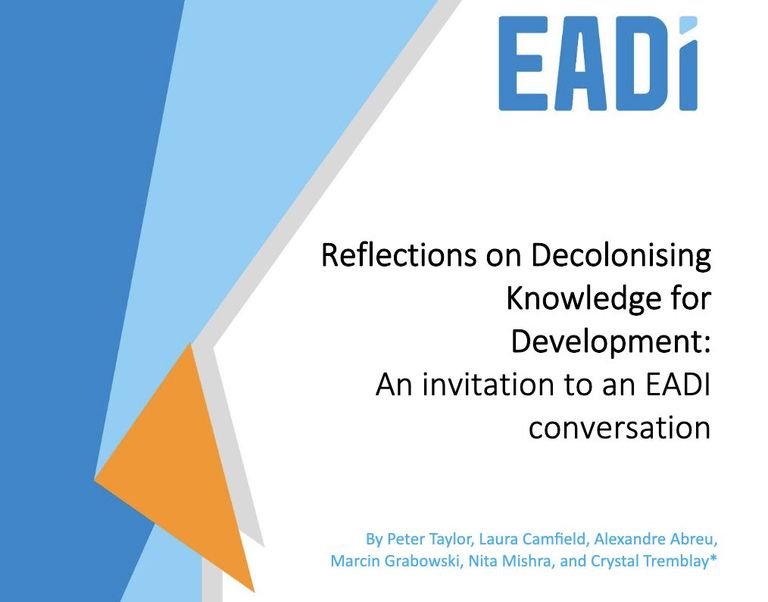Reflections on Decolonising Knowledge for Development: An invitation to an EADI conversation
The European Association of Development Research and Training Institutes (EADI)’s 50th anniversary creates a moment for reflection amidst what is increasingly viewed as a time of crisis in development and in Development Studies itself (see for example this blog1). Many who believe Development Studies was born from a colonial mindset also perceive this mindset continuing to this day. Calls to decolonise not only Development Studies, but social sciences more broadly and beyond (including the natural and applied sciences), have grown louder in recent years. But it is also possible to see Development Studies as driven by an anti-colonial mindset from its emergence in the ferment of 1950s/1960s independence movements and orientation towards global solidarity. So, is Development Studies a neo-colonial endeavour, an anti-colonial endeavour, or a shifting, transforming and, sometimes, perplexing combination of both? How does this inform how, and under which contexts, development is pursued? And what are the implications for EADI’s engagement in efforts to decolonise knowledge for development?



